Can Stress Cause Early Menopause: The Culprit Behind Hormone Imbalance and the Onset of Early Menopause
Are you constantly juggling multiple high-priority projects, battling against never-ending deadlines, and trying to keep your household running smoothly? If so, you might unknowingly increase your risk of early menopause.
That’s right, stress, the unwelcome companion in our fast-paced lives, might be responsible for more than just a few gray hairs and sleepless nights. It could be speeding up the biological clock and impacting your future fertility too, and that’s just the tip of the iceberg.
Did you know that ongoing research unveils a strong link between elevated cortisol levels, the primary stress hormone and the hastening of menopause onset? This is a wake-up call for every stress-laden superwoman out there to prioritize self-care and stress management.
Take a moment to join us as we explore how our body’s response to stress might be impacting the onset of early menopause in some women.
We will navigate you through the labyrinth of factors that intertwine stress’s physiological and psychological responses, intricately weaving together the scientific evidence, expert opinions, and practical advice you need to nurture your reproductive health.
As you sip your morning coffee and read this blog post, we will dive into the fascinating yet complex link between stress and early menopause. Read on, and let’s start tackling this vital issue together.
Navigating the Connection between Stress and Menopause Onset: Can Stress Cause Early Menopause?
Early menopause is a cause for concern, and stress may be one of the key influences. The relationship between our body’s hormones that regulate reproductive function and those associated with our stress response is intricately linked to this phenomenon.
Let’s break it down and first understand how stress and hormones interact in our bodies.
Hormones Govern Women’s Reproductive Function
Our hormones serve as a complex network, addressing many of the processes behind fertility and reproduction. For example, two of these key players are estrogen and progesterone.
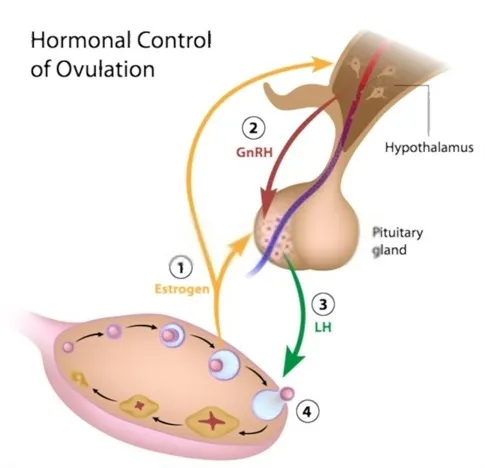
Estrogen regulates several bodily functions essential for female health, such as the growth of reproductive organs, healthy bones and skin, menstrual cycle regularity, libido, and fertility. On the other hand, progesterone is essential for thickening the uterine wall and preparing it for the implantation of a fertilized egg.
It also plays an important part in maintaining pregnancy and helping to regulate the menstrual cycle. These hormones are driven by another hormone, follicle-stimulating hormone (FSH), secreted by the pituitary gland.
When FSH binds to its receptors, it triggers a cascade of events that result in estrogen and progesterone production. This ensures healthy sperm development, ovulation, conception, and implantation.
The Stress-Hormone Link: Impact on Early Menopause
Now let’s review how stress can enter this complex hormonal network and potentially cause early menopause.
Stress is a physiological and psychological response to perceived threats and can significantly impact the body’s hormonal systems. When we experience stress, the body releases hormones such as cortisol and adrenaline, which prepare us for a “fight or flight” response.
The hypothalamic-pituitary-adrenal (HPA) axis is the body’s primary stress response system, regulating the production and release of cortisol. The HPA axis involves the hypothalamus, pituitary gland, and adrenal glands, which work together to produce and release cortisol in response to stress.
When we experience chronic or prolonged stress, the HPA axis can become overactive, leading to elevated cortisol levels. This triggers a chain reaction that leads to an increase in cortisol production.
Cortisol is often referred to as the “stress hormone” because its key role is to help us cope with stressful situations. The impact of cortisol on estrogen and progesterone production may potentially contribute to early menopause onset.
Several studies have indicated that elevated cortisol levels can decrease these hormones’ production, disrupting ovulation and interfering with various processes associated with fertility and reproduction.
As such, over long periods of time, cortisol can affect the pre-menopausal stages and potentially cause early menopause. An elevated Cortisol can reduce levels of FSH and LH, leading to a decrease in ovarian follicle development and ovulation.
This disruption of the menstrual cycle can cause problems in fertility and lead to premature ovarian failure. In addition to cortisol, other hormones released during the stress response, such as adrenaline and noradrenaline, can also interfere with producing reproductive hormones and lead to the early onset of menopause.
Stress and the Depletion of Ovarian Reserve
In addition to disrupting hormone levels, chronic stress can also impact a woman’s ovarian reserve, which refers to the number and quality of eggs remaining in her ovaries.
The depletion rate of ovarian reserve varies from woman to woman and is affected by various factors, including age, genetics, and environmental factors, including stress.
Research has shown that chronic stress can accelerate the depletion of ovarian reserve, leading to premature ovarian failure. This is because the ovaries are highly sensitive to stress and can be damaged by releasing stress hormones such as cortisol.
As a result, the quality and quantity of eggs in the ovaries can decrease, making it more difficult for women to conceive. Low ovarian reserve is a risk factor for early menopause, and stress-induced depletion of ovarian reserve can contribute to this risk.
Women who experience premature ovarian failure may enter menopause earlier than expected, potentially as early as their 20s or 30s. This can have significant implications for a woman’s overall health and well-being and her ability to conceive.
It’s important to note that while stress can contribute to the depletion of ovarian reserve and early menopause, it is not the only factor at play. Age, genetics, and other environmental factors can also impact women’s ovarian reserve and reproductive health.
However, managing stress and adopting healthy lifestyle habits can help support reproductive health and potentially reduce the risk of premature ovarian failure and early menopause.
Chronic Stress and Inflammation Trigger Early Menopause
Chronic stress can cause imbalances in the body that lead to inflammation. This, in turn, can affect a woman’s reproductive hormones and impede ovarian function.
When the body undergoes stress, it triggers a response that can cause chronic inflammation, producing free radicals that can damage cells, including those in the ovaries.
The immune system is also involved in the process of follicular atresia, which is the natural process of follicle death in the ovaries.
However, chronic stress can lead to an imbalance in the immune system, causing an increase in pro-inflammatory cytokines that can accelerate the process of follicular atresia and depletion of ovarian reserve.
Furthermore, studies have shown that chronic stress can also affect the production of sex hormones, particularly estrogen. The immune system can produce enzymes that metabolize estrogen, and chronic inflammation can increase the production of these enzymes, leading to a decrease in estrogen levels.
Research has shown that chronic stress and inflammation can lead to a decrease in estrogen production and an increase in follicle-stimulating hormone (FSH) levels. This can further facilitate the depletion of ovarian reserve and lead to early menopause.
The Impact of Early Menopause on Women’s Health
Early menopause can have significant repercussions on women’s health. Let’s take a look at some of the potential consequences:
Physical Effects
Early menopause can lead to various physical effects on a woman’s body. The hormonal changes associated with menopause, such as decreased estrogen levels, can lead to several symptoms, including hot flashes, night sweats, vaginal dryness, sleep disturbances, stomach ache, and more.
These hormonal shifts can also cause weight gain, particularly around the midsection, as well as changes in hair texture, acne, skin elasticity or wrinkles, and other physical manifestations.
Mental Health Effects
Early menopause can also profoundly affect a woman’s mental health. Lower estrogen levels can increase anxiety and depression, difficulty concentrating, memory lapses, and mood changes.
Women experiencing early menopause may feel a sense of loss or sadness over their perceived loss of fertility. This can lead to grief, frustration, and even anger or resentment.
They may also feel overwhelmed or out of control, resulting in feelings of isolation and loneliness. Furthermore, the physiological effects of menopause, such as sleep disturbances and mood swings, can exacerbate emotional stress, making it more challenging to cope with these feelings.
It’s important for women going through early menopause to seek support from friends, family, or professional counseling to help manage these emotional challenges.
Increased Risk of Chronic Diseases
Early menopause increases the risk of developing several chronic diseases later in life. The hormonal changes associated with menopause can lead to a greater risk of certain health conditions, such as:
Cardiovascular Disease
Reduced estrogen levels during menopause can affect the elasticity of blood vessels, increase cholesterol levels, and contribute to weight gain – all of which are risk factors for cardiovascular diseases such as heart attacks and strokes.
Osteoporosis
The decline in estrogen levels can also lead to bone loss, increasing the risk of osteoporosis and fractures. Women who experience early menopause are at a particularly high risk of developing osteoporosis due to the extended period that their bones are subjected to lower estrogen levels.
Cognitive decline
Some studies suggest that early menopause may be linked to a higher risk of cognitive decline, including Alzheimer’s disease and other forms of dementia.
Identifying and Managing Stressors Culpable for Early Menopause
Given the significant health impacts associated with early menopause, it’s crucial for women to be aware of the potential risks and to seek early detection and treatment.
One of the best ways to reduce the risk of early menopause is to identify and manage any underlying stressors or lifestyle factors that could be contributing to it.
Regular gynecological check-ups and discussing symptoms with a healthcare provider can help identify early menopause and implement appropriate interventions to manage symptoms and reduce the risk of chronic diseases.
Stress Assessment
Stressors can come from various sources, including work-related stress, relationship issues, financial concerns, or other personal challenges.
The first step in managing stress and preventing its negative effects, it is important to take some time to reflect on your daily routine and the things that cause you stress. It may be helpful to keep a stress diary where you can record stressful situations and how they make you feel.
Emotional trauma, longstanding unresolved issues, complex life events that can also contribute to early menopause, and even poor nutrition are all potential stressors that can contribute to early menopause.
Identifying these issues and seeking the necessary support or professional counseling to address them can help reduce their negative impact on your health.
Stress-Reducing Strategies for Better Reproductive Health
Various stress management techniques can be used to help manage stress and improve overall well-being. These techniques can be divided into three main categories:
Lifestyle changes
Making lifestyle changes such as getting enough sleep, exercising regularly, and practicing relaxation techniques can help reduce stress levels. Exercise releases endorphins, which can improve mood and reduce stress.
Relaxation techniques like deep breathing and progressive muscle relaxation can also help reduce stress and promote relaxation. Also, food habit and nutrition has a great role in managing stress levels.
A healthy diet should balance fruits, vegetables, whole grains, lean proteins, and low-fat dairy. Eating foods rich in omega-3 fatty acids, such as salmon and flaxseed oil, can help reduce inflammation and improve hormone balance.

To delay the menstrual shutdown and menopause, paying attention to lifestyle and nutrition is necessary. A simple herbal tea or a 30-minute walk in the fresh air can do wonders.
Mind-body techniques
Mind-body techniques such as yoga, tai chi, meditation, and deep breathing can also help manage stress. Yoga combines physical exercise with mindfulness, which can help reduce stress and improve overall well-being.
Meditation can also help reduce stress by promoting relaxation and mindfulness. And deep breathing exercises can help slow the heart rate, reduce anxiety, and improve mood.
Counseling and support
In some cases, stress can be too overwhelming to manage alone. Having a strong social support system is key to managing stress and feeling emotionally supported during times of difficulty.
Seeking professional counseling or joining a support group can help provide guidance and understanding during stressful times. Talking to friends and family can also be beneficial in managing stress levels.
Seeking professional help
If stress affects your daily life and causes significant distress, seeking professional help may be necessary. A healthcare professional can provide support and guidance on stress management techniques and may recommend therapy or medication if necessary.
Therapy can provide a safe space to discuss and work through stressful situations. Medications such as anti-anxiety or antidepressant medications may also be prescribed to help manage stress levels.
Talking to a professional therapist can also help identify and manage stressors. Cognitive-behavioral therapy (CBT) is an effective way of dealing with stress and anxiety, as it teaches coping strategies and helps you develop healthier thought patterns.
A comprehensive assessment of a patient’s mental health, stress levels, and overall well-being should be incorporated into routine medical care, particularly for women of reproductive age who are at increased risk for early menopause.
Early identification and intervention can help reduce the long-term impacts of stress on health and well-being.
What can trigger early menopause?
Early menopause can be triggered by various factors, including lifestyle, environmental, and genetic factors.
Common triggers for early menopause include stress, smoking, chronic health conditions such as diabetes or autoimmune diseases, premature ovarian failure (POF), certain medications like chemotherapy or radiation therapy, and family history.
It is important to be aware of these triggers and to discuss them with a healthcare provider, as early detection and intervention can help reduce the long-term impacts of stress on health and well-being.
Can emotional trauma cause menopause?
Emotional trauma can significantly impact a woman’s reproductive system, potentially leading to early menopause. Menopause is a natural biological process that marks the end of menstrual cycles and fertility, typically occurring in a woman’s late 40s or early 50s.
However, in some cases, menopause may happen prematurely due to various factors, including emotional trauma. The primary cause of menopause is decreased production of hormones like estrogen and progesterone, which regulate the menstrual cycle and support reproductive function.
Emotional trauma and chronic stress can cause an imbalance in these hormones, resulting in an earlier onset of menopause. Stress affects the hypothalamus, a small region at the base of our brain responsible for controlling hormone production by releasing specific chemicals.
Stress, especially long-term or chronic stress, may disrupt the hypothalamus signaling to the pituitary gland, ultimately affecting the ovaries and their functions.
Consequently, this may lead to irregular menstrual cycles, a decrease in the quality of eggs produced, or even cessation of ovulation, all of which contribute to early menopause.
One of the major factors that may lead to emotional trauma or chronic stress is exposure to traumatic events, such as physical or sexual abuse, natural disasters, accidents, or the sudden loss of a loved one.
Moreover, individuals who suffer from mental health disorders, like anxiety, depression, or post-traumatic stress disorder (PTSD), are more vulnerable to experiencing hormonal imbalances and, thus, early menopause.
It is important to note that research in this area is limited, and the cause of early menopause is often multifactorial, involving genetics, environmental factors, and lifestyle choices.
Emotional trauma may not necessarily lead to menopause alone, but it can be a contributing factor when combined with other risk factors.
Thus, women must maintain a healthy lifestyle, seek mental health support when needed, and consult a medical professional if they suspect early menopause due to emotional trauma or stress.
Can lifestyle changes help delay menopause?
Well, obviously, lifestyle changes can help delay menopause onset; however, it is important to remember that tampering with hormones and the body’s natural processes always carries with it some level of risk.
That said, maintaining a healthy lifestyle may help delay the onset of menopause. Some suggested lifestyle changes that could potentially delay menopause include:
• Maintaining a healthy weight and body mass index (BMI)
• Eating a balanced diet full of antioxidants, phytoestrogens, and other nutrients
• Exercising regularly and engaging in physical activity
• Reducing stress levels through relaxation techniques like yoga or meditation
• Limiting alcohol consumption and avoiding smoking
• Reducing exposure to environmental toxins
It is important to note that these lifestyle changes may not work for everyone; however, they can be beneficial when combined with other factors. For instance, regular physical activity can help reduce stress levels and increase the body’s sensitivity to hormones like estrogen.
Thus, if a woman is already at an increased risk of early menopause due to emotional trauma or stress, this could be a beneficial lifestyle change.
Ultimately, it may be best to discuss any potential lifestyle changes with a medical professional before making any significant alterations that could have negative consequences.
Take Charge of Your Reproductive Health: Manage Stress and Enhance Your Well-Being
The intriguing connection between stress and early menopause warrants further exploration and attention. Understanding this relationship can empower individuals to make informed decisions regarding stress management and proactive healthcare as vital considerations for women’s long-term health and well-being.
By adopting a balanced lifestyle, prioritizing stress reduction techniques, and seeking professional guidance on any concerns, women can take charge of their reproductive health and potentially mitigate the risk of early menopause.
Advancements in future research will undoubtedly shed more light on this complex interplay, providing crucial insights for medical professionals and individuals.
Embracing a nuanced understanding of the stress-menopause connection is a key step toward enhancing our collective knowledge of this critical aspect of women’s health.
So, stay informed, stay proactive, and prioritize your health and well-being in the face of life’s inevitable stressors.



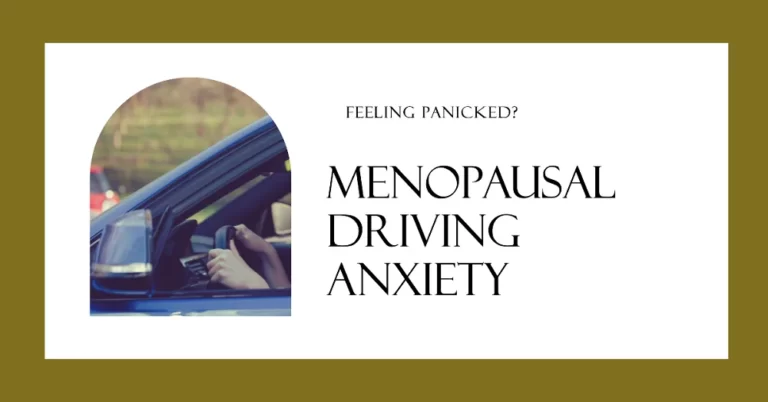
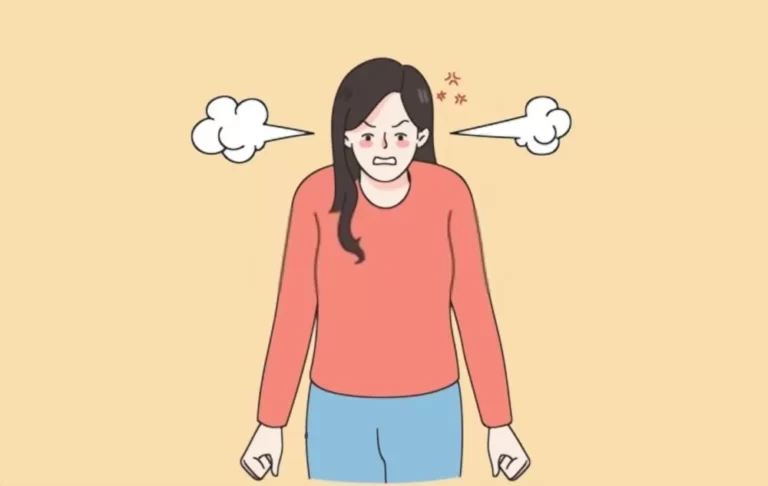

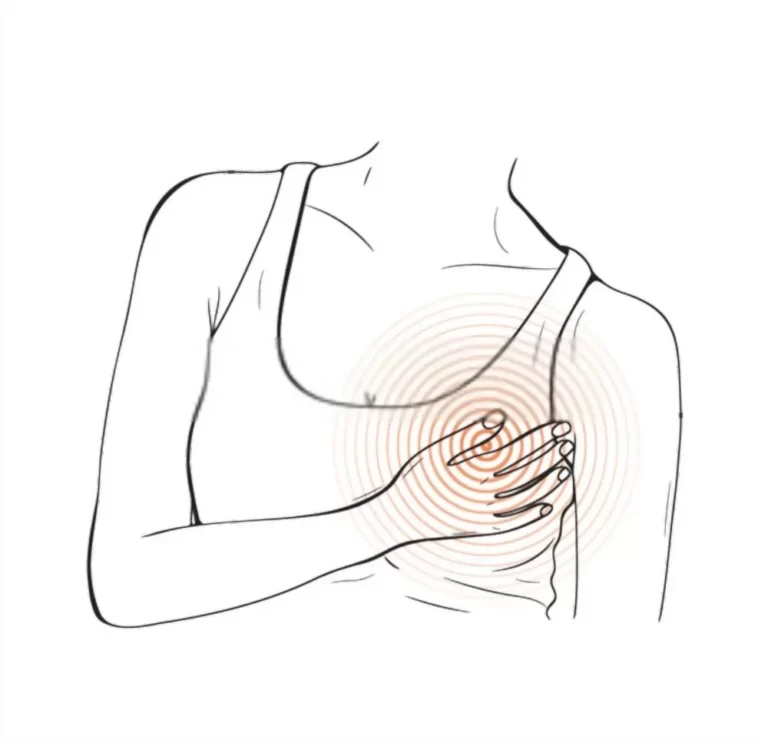
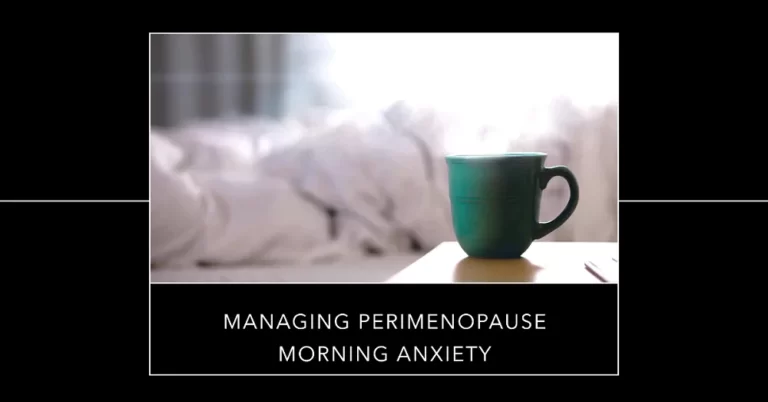
Please be mindful of your words about women gaining “a wakeup call” and just trying to be superwomen like we’re all corporate CEO’s biting off more than we should chew…we have serious life experiences too and usually have no choice about them…women are portrayed their own worst enemies too often, as if our strain is always just a choice in the new feminist existence. Stress is usually given to us. Trauma is a major issue too. I had a few growing up, but the worst was the horrific way in which my husband was fatally injured and I slept by his side and advocated for him the hospital for nearly 2 months before he had to be let go. I can’t get doctors to take it seriously but it wrecked my hormones. I have had perimenopause symptoms for 8 years. Because I was in my early 30’s at the onset they just couldn’t go there with me for a diagnosis. Women need to be taken seriously. When if comes to hormones just changing your stress load and adopting a sunny attitude isn’t going to cut it, same with true hardship or PTSD. I’m just tired of women’s issues minimized because we already seek help and care for it. The problem is we still get zero answers or support! But we have to buck up and move forward anyway.
Yes, a lot of time women and their issues are dismissed and often not listened to. Perimenopause, menopausal symptoms, PTSD and period issues are a few to list that often are under recognised. But that’s why we need to keep advocating for ourselves.
Stress management, acknowledging the triggers of stress and asking for right help are a few first steps in that. And that’s what I am tying to highlight. Thank you so much for sharing and being so brave to open your experience here. Let’s keep the women’s health advocacy going across all platforms